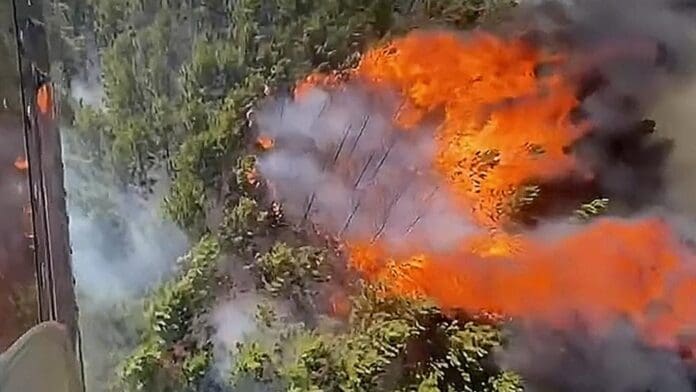The Minnesota DNR and St. Louis County Attorney’s Office announced last week that 27-year-old Parker John Wilson of Duluth has been charged with a misdemeanor for allegedly failing to properly extinguish a fire on property he owns near Highway 44 on May 11 around 1 p.m.
The fire, quickly dubbed the Camp House Fire, swept across more than 12,000 acres and destroyed over 150 structures, including 16 homesteaded properties. Its rapid spread prompted mandatory evacuations along Highway 44 and surrounding areas, leaving residents and communities on edge for weeks.
According to mapoffire.com, estimated damages from the fire total $8.7 million, a stark reminder of the destructive power of uncontrolled blazes. Containment required the coordinated efforts of hundreds of firefighters who battled the fire for over a month before finally bringing it under containment on June 13.
Wilson has a history with fire-related incidents. He previously faced a petty misdemeanor conviction in St. Louis County District Court for starting a fire at a popular Duluth swimming hole known as “The Deeps.”
While the long-awaited charge is welcome news, many affected by the Camp House Fire are frustrated by the relatively light legal consequences. Under Minnesota Statute §88.19, subdivision 5, failing to extinguish a fire is classified as a misdemeanor, emphasizing intent and control rather than the outcome of the blaze.
A misdemeanor under this statute carries up to 90 days in jail and a fine of up to $1,000, a blatant contrast to the extensive destruction caused by the fire. For those who lost homes and property, the gap between the legal repercussions and the fire’s human and financial toll remains painfully wide.



